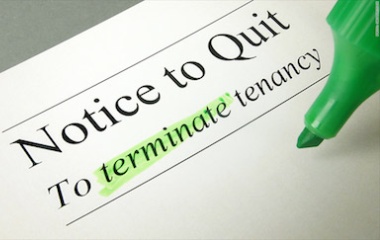
“Two people are holding onto a tallit. This one says…‘it is all mine’ and this one says ‘it is all mine’” (Bava Metzia 2a). Unable to determine who is the rightful owner – and taking into account that it is possible that both picked up the object at the same time and truly believe it is theirs - the Mishna rules that each one is to take an oath that “they do not own less than half and they split it” or, if the object cannot be easily divided, the object would be sold and the proceeds split.
Yet oaths are something that we like to stay away from. With Jewish law teaching that possession is at least 9/10th of the law and with both parties equally in possession of the tallit, why not just split it without an oath?
The Gemara explains that, in theory, there is no need for an oath. Sadly, in the real world we need to impose such an oath, “so that this one or that one not go and grab the object of another and say it is mine” (Bava Metzia 5b).
Yet if we are afraid that one will try and steal an object from another, of what use is an oath? If one is willing to steal, would they not also be wiling to lie under oath? The Gemara’s initial response is that in fact, no, they will not. As Rashi so perceptively puts it, “people view the prohibition of swearing falsely more severely than that of stealing.” Many will steal, but only a few will lie under oath.
Only if we know for certain or have very strong grounds to suspect that someone has stolen can we assume they might also lie under oath. Hence, we would forbid a thief from taking an oath both because we cannot trust his word, and because by allowing him to take an oath, we are in the position of being an accessory to perjury[1].
But not all cases fit into neat compartments. “Hakofer b'milvah kasher l'edut, one who denies a loan remains valid to give testimony” (Bava Metzia 5b). Some may deny a loan not because they want to steal, but because they do not have the money to pay back and see the denial as a delaying tactic to buy time until one can pay back the loan. While we today may consider such a person an out-and-out liar, apparently in Talmudic times at least some of those who denied a loan really did intend to pay back. With loans given to be spent, it is readily understood that the person may not have available funds to repay the loan. One’s denial is not conclusively seen as an act of fraud, but as a plea for more time.
That people are likely to be embarrassed when unable to pay a debt and may lie to cover up their dire financial situation is reflected in the (little known) Torah prohibition against asking a debtor to repay a loan when it is known he honestly lacks the capability to do so (see Sefer haChinuch #67). So sensitive must a creditor be that it is even prohibited to pass by the debtors’ home in such a scenario.
This is not the only type of lie that we can “excuse”. A shomer chinam, an unpaid bailee, who is unable to return an object entrusted to him must either take an oath that they were not negligent or they must pay for the object. One may choose to pay either because in fact they were negligent or because they are unwilling to take an oath that they were not, lest they were, in fact, somewhat negligent.
However, there is a third possibility: namely, that they just want to acquire the object and this is a great way to buy it, notwithstanding that the owner has no desire to sell it. For this reason Rav Huna requires the bailee to take an oath that it is not still in his possession (Bava Metzia 34b). But why not fear that one who is willing to acquire an object in such an illicit manner may also swear falsely? In response to this, the Gemara explains that since he pays for the object he feels justified in his actions. He is wrong, but nonetheless, we have no reason to suspect that he would lie under oath.
However, such an argument cannot be made when one denies having a deposit: “hakofer b'pikadon pasul l'edut, one who denies a deposit is invalidated from giving testimony.” With one prohibited from making use of a deposit, it must remain in the possession of the bailee, ready to be returned upon request. If the object has been lost or stolen, the bailee can take an oath to that effect, and would be exempt from payment. The only reason to deny taking the object would be if he were negligent in guarding it, and is thus trying to escape payment. It follows that one who is caught red-handed denying having an object in his possession is doing so to avoid payment due to his negligence. Hence, such a person cannot be trusted to take an oath either.
Whether we can trust a person cannot be determined by objective facts alone. We must understand the psychology of lying in order to evaluate whether the lie before us is indicative of a person’s character or is rather just a momentary, even understandable, moment of weakness in an otherwise honest person.
As we approach Yom Kippur, our pleas for forgiveness are predicated on the claim that our sins do not reflect our essence, but are momentary lapses based on understandable--even if mistaken--justifications. May G-d have mercy upon us and take into account our human foibles, and may we do the same regarding the foibles of others.
[1] Under normal circumstances, it is the defendant who must always take the oath denying he owes money. In such cases we flip the oath, so that the plaintiff would take an oath that he is owed money and would be allowed to collect the amount claimed.



